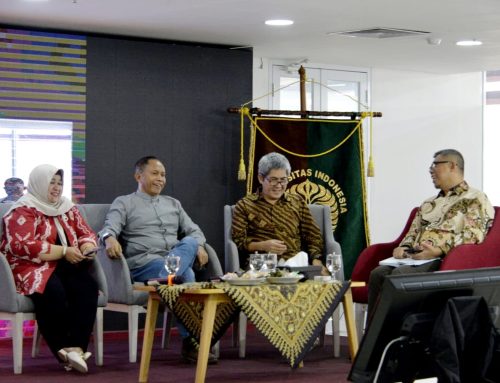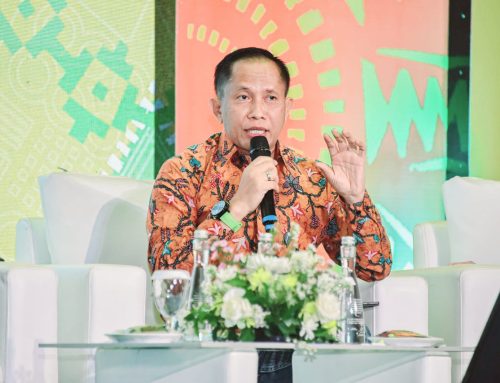JAKARTA, 30 September 2020 – Climate scientists across Asia, as well as COP26 and UN climate representatives, called for urgent action and stronger collaboration in addressing climate change in developing countries, despite the setbacks brought on by the COVID-19 pandemic.
In an international virtual conference hosted by APIK Indonesia Network, Dr. Mahawan Karuniasa emphasized the need for a low carbon and sustainable recovery from the pandemic. “Learning from COVID-19, we need to strengthen our stakeholder engagement, build better solidarity, and implement science-based actions in facing the climate crisis,” he said.
The conference was officially opened by Dr. Ruandha Sugardiman, Director General of Climate Change of the Indonesian Ministry of Environment and Forestry.
“The world is still not on track to reach the Paris Agreement goals,” said Ken O’Flaherty, COP26 Regional Ambassador to Asia-Pacific and South Asia. “The next five years is critical, we must work together and act urgently.”
Developing countries such as Indonesia, Philippines, Vietnam, and Bangladesh are highly vulnerable to climate impacts with limited resources to support needed action.
In response, the conference focused on the developing nations’ Nationally Determined Contributions (NDC) and National Adaptation Plans (NAP), and how the proper implementation, collaboration, and mainstreaming of climate efforts on the ground can help meet the Paris Agreement goals.
“Apart from compliance, it is more important to contextualize NDC and NAP in the national and local planning and make sure we are doing the right thing in terms of mitigation and adaptation,” said Prof. Saleemul Huq, Director of the International Center for Climate Change and Development in Bangladesh.
Echoing this call is Philippines climate scientist Lourdes Tibig, a technical expert of the Philippine Climate Change Commission and founding member of the Asia Climate Experts (ACE) Network. “We need to have champions at the national and local levels so that we can embed climate change in development planning. Harmonization of policies and resources is also very important, ”she said.
“While we speak different languages across Asia, collectively we have the human capacity, expertise, and experiences in dealing with climate change and its impacts,” added Dr. Felino Lansigan, dean of the College of Arts and Sciences of the University of the Philippines Los Baños and founding member of the ACE Network. “When we work as a team, we achieve more and hopefully, we achieve it faster.”
CONTACT
Priyaji Agung Pambudi, APIK Indonesia: secretariat@apiki.or.id, +6282334444021
www.apiki.or.id/international-conference-2020



